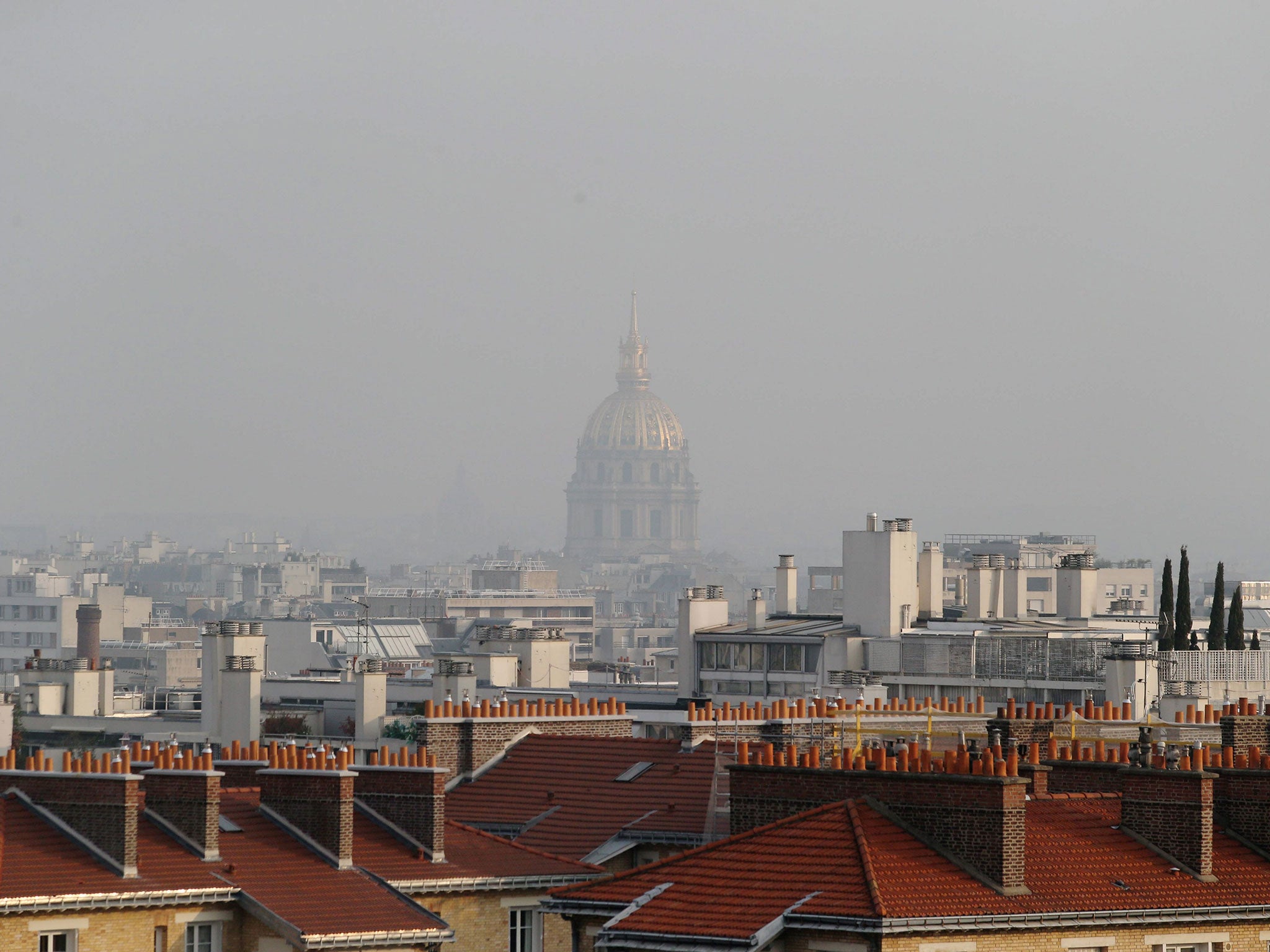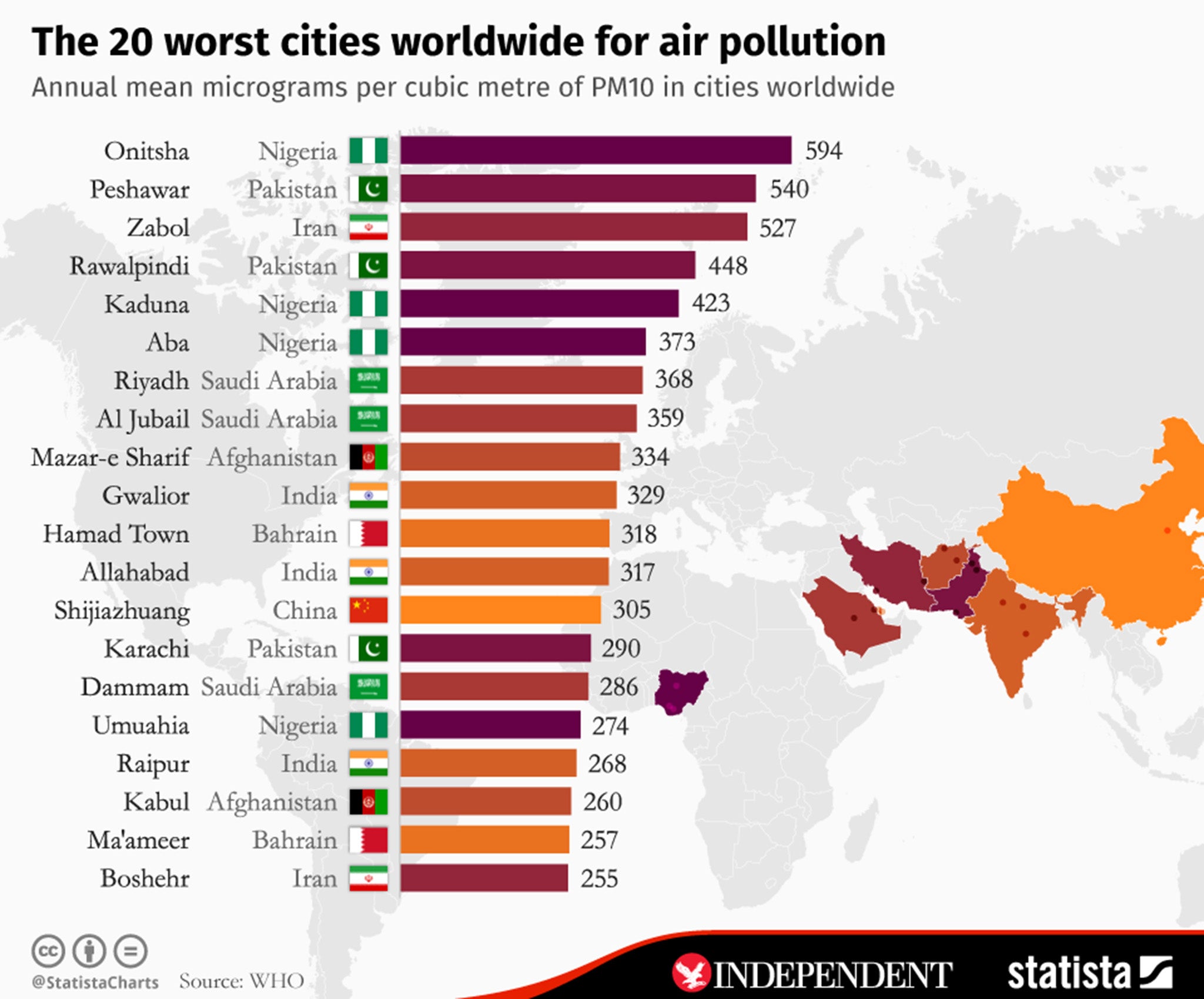Eighty per cent of world's urban population are breathing in dangerously high levels of air pollution
WHO spells out the reasons for cleaning our atmosphere: 'When air quality improves, health costs from air pollution-related diseases shrink, worker productivity expands and life expectancy grows'

More than 80 per cent of people in towns and cities around the world are exposed to dangerous levels of air pollution, the World Health Organisation has warned.
The result is that more than three million people die prematurely every year, making the air we breathe the greatest environmental risk to health, a major WHO study found.
It also pointed to a sharp disparity between rich and poor: in high-income countries just 56 per cent of people in urban airs were affected by air pollution above safety limits, compared to 98 per cent of those in low and middle-income countries.
On average across the world, levels of pollution increased by eight per cent between 2008 and 2013, although most cities in rich countries improved the state of their air over the same period.

The highest levels of small and fine particulate pollution, known as PM10 and PM2.5 respectively, were generally found the eastern Mediterranean and South-East Asia, with the average annual levels often exceeding five to 10 times the safe limits in low and middle-come states.
The city with the world’s highest levels of fine particulates – of those that actually record the levels, many do not – was Zabol in Iran, followed by Gwalior and Allahabad in India, Riyadh and al-Jubail in Saudi Arabia.
However Zabol’s problems are largely a natural phenomenon. Every summer it suffers from dust storms in summer known as the “120-day wind”. According to WHO figures, the annual average for fine particulates in the city was 21 times the recommended level and for small particulates it was 26 times.
But industrial emissions were to blame in many other cities around the world.
The city with the highest levels of small particulates was Onitsha in Nigeria, known for its traffic jams, heavy industry and unregulated rubbish dumps. Its level of small particulate pollution was nearly 30 times the recommended level. It was followed by Peshawar in Pakistan; Zabol, Iran; Rawalpindi, Pakistan; and Kaduna, Nigeria.
But even in wealthy countries, air pollution is a significant problem. Paris, where the city has begun to have car-free days to reduce the problem, the WHO found the average annual levels of small and fine particulates were 40 per cent and 80 per cent higher respectively than the recommended levels.
Dr Carlos Dora, the WHO’s coordinator of interventions for healthy environment, said: “It is crucial for city and national governments to make urban air quality a health and development priority.
“When air quality improves, health costs from air pollution-related diseases shrink, worker productivity expands and life expectancy grows.
“Reducing air pollution also brings an added climate bonus, which can become a part of countries’ commitments to the climate treaty.”
The WHO said increasing the use of renewable power sources, like solar and wind, and reducing “industrial smokestack emissions” would help alleviate the problem.
And it added in a statement: “Prioritizing rapid transit, walking and cycling networks in cities are among the suite of available and affordable strategies.”
Later this month a World Health Assembly – the WHO’s governing body – will meet to discuss a “road map for an enhanced global response to the adverse health effects of air pollution”.
Join our commenting forum
Join thought-provoking conversations, follow other Independent readers and see their replies
Comments
Bookmark popover
Removed from bookmarks